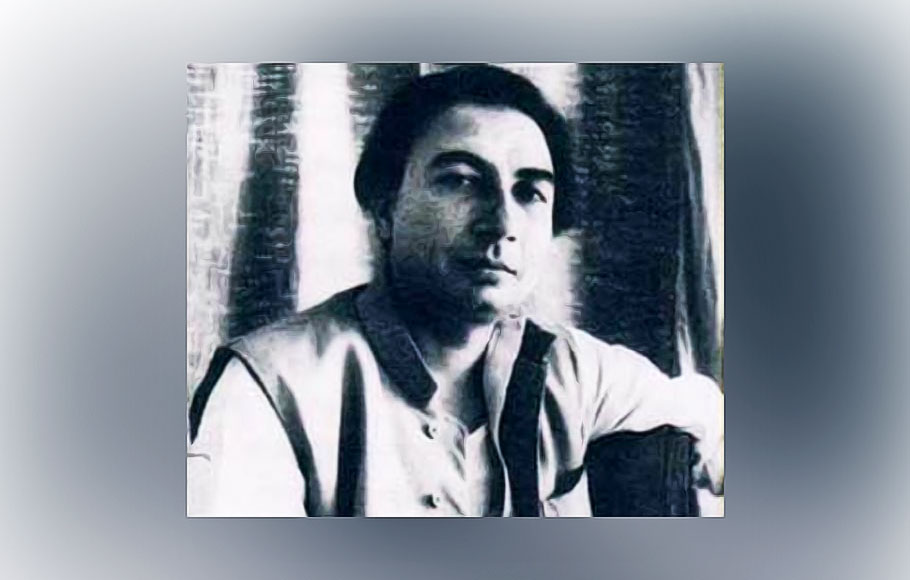
Sahir: The poet troubled by communal divisions

Many people who know Sahir Ludhianvi refer to him as a romantic poet who was also a rebel, or as a “romantic rebel”. At one time, I shared this impression. But over the past 34 years, as I have understood him better and internalised his thought, I have come to believe that the “romantic-poet-first” impression is not accurate. To understand Sahir well, one must read his non-film poetry.
Of course, his thought and philosophy are found in his movie lyrics too. But one must not forget that these songs were written to fit movie situations. A colossus in the film industry, he could get away by infusing songs with his ideas. Nobody seemed to object because it gave the songs some depth.
Let’s take an example. For a song in the 1975 movie Zameer, Sahir wrote it is sometimes all right to fail:
Tere girne mein bhi teri haar nahin
Ki tu aadmi hai, avtaar nahin
(Even if you fall, it’s not your defeat because you are a human, not a deity)
Sahir was a revolutionary who thought of, and spoke for, the common person. His work showed society a mirror. In his poetry, one finds concerns that do not occur to too many educated people. Even in his film songs, he wrote about matters like the second-rate status of women in patriarchal societies, the tribulations of farmers (and the unhappy compromises they have to make), and the devaluation of humans vis-a- vis money.
His lyrics highlighted inequity in social status and opportunity. In Chandi Ki Deewar (1964), where he teamed up with his composer friend N. Dutta, he penned:
Ek taraf andhi daulat ki pagal aish-parasti
Ek taraf jismon ki keemat roti se bhi sasti
Ek taraf hai Sonagachi
Ek taraf Chowrangi hai
(On the one side, there’s a blind worship of wealth on the other, bodies are cheaper than bread. On the one side is Sonagachi on the other is Chowringhee)
This was not the first time, Sahir wrote about women being pushed into prostitution. The searing Pyaasa song Jinhe naaz hai Hind par woh kahan hain (an adaptation of Chakle, one of his early works) spoke about it in detail. So did the song Do boonden sawan ki in Phir Subah Hogi (1958), the movie for which Khayyam was chosen as composer over Shankar Jaikishan on his insistence:
Do sakhiyan bachpan ki
Ek singhasan par baithe aur roopmati kehlaye
Dooji apne roop ke karan galiyon mein bik jaaye
Kisko mujrim samjhe koi, kisko dosh lagaye
(Two childhood friends. One sits on the throne and is called a beauty. The other is sold in the streets because of her beauty. Whom should one hold guilty, whom should one blame)
One of Sahir’s biggest concerns was communalism. He detested the division of people on religious lines. Today few people talk about the danger of mixing politics and religion is; Sahir wrote about it decades ago. He witnessed society being riven, and India being divided, on communal lines. If the Partition left his psyche wounded, the cynical use of religion for political ends in the post-Independence years disturbed those scars.
Referring to the atrocities on dalits (then referred to as ‘Harijans’, a coinage of Gandhi) and to communal riots in Gujarat in 1969, he wrote in his nazm Gandhi Ho Ya Ghalib:
Woh basti woh gaon hi kya
Jis mein Harijan ho azad
Woh kasba woh shahr hi kya
Jo na bane Ahmedabad
(What is a slum, what is a village if its Harijans are free. What is a town, what is a city if it does not become an Ahmedabad)
Talkhiyan, Sahir’s first anthology, is a must-read for people who want to understand him. First published when Sahir was in his early twenties, it reflects the thought of a person who grew up early in many (if not most) ways. Talkhiyan means bitterness and seems an apt title because it reflects the trials and tribulations Sahir faced in his early years.
Whenever there is a discussion about left-wing poets like Kaifi Azmi and Sahir, talk invariably veers to contemporary situations. There are comparisions between what existed then and what prevails now. One hears “Sahir told us so a long time back”, “Kaifi highlighed this half a century ago” or “Shailendra wrote about this in Shree 420”.
Poverty, unemployment and people’s helplessness — themes dwelt upon by these poets — exist even today. The more things change, the more they seem to remain the same. The dreams sold to India have remained dreams; the promises made to Indians are made over and over again.
Then there are objectors who have a problem with these discussions turning political. Talk only about the poets and their poetry, they say, don’t make it political. They don’t realise that Sahir and poets like him were political beings, if not politicians. Sahir wouldn’t have been Sahir had he no politics. One cannot think of him minus his intellectual prowess. There is no Sahir if he does not criticize or ask questions.
We need Sahir today, 39 years after his death, to hold the powerful and mighty to account. We need him to disrupt the unintellectual lull around us. We need him to awaken people who have become comfortably numb.
Deen dharam ke naam pe koi beej phoot ka boye na
Jo sadiyon ke baad mili hai woh azadi khoye na
Har mazhab se oonchi hai keemat insaani jaan ki
(Let nobody sow seeds of divisions in the name of religion. Let’s not lose the freedom we have gained after centuries. Above every religion is the price of human life)
These lines from Didi (1959), sung as an exhortation to schoolchildren, seem Sahir’s message to every Indian today. It seems he foresaw what the country would be 60 years hence.

